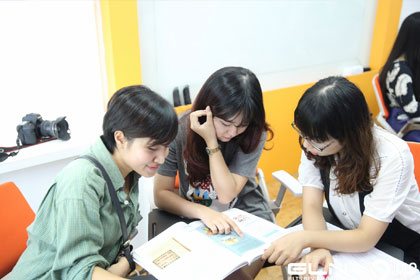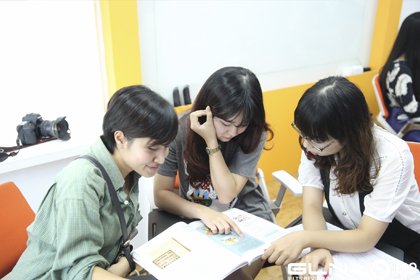TỪ VỰNG CẦN BIẾT CHO CHỦ ĐỀ FAMILY
- husband: chồng (the male partner in a marriage).
- wife: vợ (a married woman).
- uncle: chú, cậu, bác trai (the brother of someone’s father or mother).
- aunt: dì, cô, bác gái (the sister of someone’s father or mother)
- nephew: cháu trai (the son of someone’s brother or sister)
- niece: cháu gái (a daughter of someone’s brother or sister)
- cousin: anh em họ (a child of someone’s uncle or aunt)
- spouse: vợ/ chồng, người có quan hệ hôn nhân với người kia (a husband or wife, considered in relation to their partner)
- stepdaughter: con riêng của chồng/vợ (the daughter of one’s spouse and his or her previous partner)
- stepmother: mẹ kế (one’s father’s second, third, etc. wife)
- mother-in-law: mẹ chồng, mẹ vợ (the mother of one’s spouse)
- father-in-law: bố chồng, bố vợ (the father of one’s spouse)
- extended family: đại gia đình, bao gồm cả bố mẹ, con cái, ông bà và (có thể) cả cô chú, các bác… (family that includes, ot only of parents and children but also of grandparents, aunt)
- nuclear family: gia đình cơ bản (hay còn gọi là gia đình hạt nhân), bao gồm bố mẹ và con cái (a mother, father, and their children, considered as a social unit)
- to raise = to bring up: nuôi nấng đứa trẻ (to care for children until they grow up)
- upbringing: sự dạy dỗ mà một đứa trẻ được nhận trong quá trình khôn lớn (the way in which a child is cared for and taught while he/she is growing up)
- childhood: thời thơ ấu (the period of life when you are a child)
- adolescence = teenage years (từ đồng nghĩa là puberty ): tuổi dậy thì (the period of life between childhood and adulthood)
- to divorce: ly dị (legally dissolve one's marriage with someone)
- to marry: kết hôn, lập gia đình (to join in marriage)
- marriage: hôn nhân (the formal union of a man and a woman, typically recognized by law, by which they become husband and wife)
- relatives: họ hàng người thân (a person connected by blood or marriage)
- to play truant = to skive off: trốn học (to be absent from school without permission)
- juvenile delinquency: tội phạm vị thành niên (antisocial behaviour demonstrated by adolescents, usually involving breaking the law)
- neglected: bị bỏ bê (not looked after, not getting any attention)
- to get on well with somebody: có mối quan hệ hòa thuận với ai đó (to have a good relationship with somebody)
- red-letter day: ngày đáng nhớ (any day that’s significant and memorable to you for a reason). E.g: The day when my father came home from the 2nd World War was the red letter day of my family.
- blended family: gia đình có thành phần bao gồm con riêng từ chồng hoặc vợ hoặc cả hai (a family where either one or both parents have children from previous relationships)
- siblings = brothers or sisters: anh chị em (individuals sharing the same father or mother)
- to allow = permit = let: cho phép (to give your permission to someone to do something)
- to take after somebody: có nét giống, tương đồng với ai đó (to be/resemble someone in appearance or character)
- overprotective: quá bảo vệ, bao bọc (wanting to protect someone too much)
- strict: nghiêm khắc, khắt khe (wanting order and discipline all the time, opposite = lenient, forgiving)
- foster family: gia đình có con nuôi (children living with guardians who are neither their natural nor their adoptive parents)
- family background: thông tin gia cảnh
- family gathering: buổi tụ họp của gia đình
- to lead seperate lives: theo đuổi cuộc sống riêng
- family activity: hoạt động gia đình
- household chore: việc nhà
IDIOM CẦN BIẾT CHO CHỦ ĐỀ FAMILY
- break one’s neck: nai lưng ra làm, cố gắng hết sức. E.g: My parents want us to try hard and use all the effort for studying. They break their neck to fulfil out requirement for life and education expenses.
- bring home the bacon: kiếm tiền nuôi sống gia đình. E.g: Now that I have a full-time job, I'm bringing home the bacon!
- buckle down: học hành nghiêm túc. E.g: My dad wants me to stop playing games and buckle down for my exams.
- until the cow comes home: khi đã về khuya, rất muộn. E.g: I regret what I have done in the past, hung out all day with bad guys and went home until the cow comes home. That made my parents worried a lot.
- bang for the buck: đáng đồng tiền bát gạo. E.g: When I had to prepare for my entrance exam to the university, my parents borrowed money from bank to help me. After graduation, I get a job in a good company and my parents said it’s the best bang for the buck they have ever made.
- chip off the old block: giống bố mẹ như đúc. E.g: John looks like his father—a real chip off the old block.
- apple doesn’t fall far from tree: con nhà tông không giống lông cũng giống cánh. E.g: He does so good at math, just like his father. You know that, apple doesn’t fall far from tree.
- the apple of one’s eyes: người được cưng chiều, yêu mến. E.g: My 2-year-old little brother is the apple of my father’s eyes. He take after my father a lot.
- men make houses, women make homes: đàn ông xây nhà, đàn bà xây tổ ấm. E.g: Despite the traditional thought that men make houses and women make homes, nowaday in Vietnam, women are capable of earning money and doing big things as well.
- like two peas in the same pot: giống nhau như đúc. E.g: The twins are like two peas in the same pot, I can hardly tell them apart.
- when the blood sheds, the heart aches: máu chảy ruột mềm. E.g: When the blood sheds, the heart aches. Everyone in the family has to take responsibility to stand by side and help others to go through sorrow.
- black sheep of the family: thành viên cá biệt của gia đình. E.g: Everyone likes me because I'm so quiet and obedient. The same cannot be said for my wild cousin Nathan, who is the black sheep of the family.
- hell or high water: dù có chuyện gì xảy ra đi chăng nữa, bằng mọi giá. E.g: By hell or high water, I am going to make it to your wedding!
- like father, like son: giống hệt nhau. E.g: My dad and my brother are like father, like son. They match each other in every aspect.
- air one’s dirty laundry in public: vạch áo cho người xem lưng. E.g: My mom acts so sensibly whenever I do something wrong. She never yells at me on front of people. She doesn’t want to air my dirty laundry in public.
- blood is thicker than water: một giọt máu đào hơn ao nước lã. E.g: You had better pay more attention to your family and relative than neighbor. Because blood is thicker than water.
- turn gray: bạc đầu. E.g: My parents work so hard to raise the children that their hair turn grey over the time.
CÁC CÂU HỎI IELTS SPEAKING CHỦ ĐỀ FAMILY
PART 1
- Do you have a large or small family?
I come from a large family. Now, I just have my mom, an older brother and three younger brothers. My father passed away 17 years ago. I am the only daughter in the family.
- How much time do you spend with your family?
For now, I live one in another city far from my family so I only spend about two weeks each year with them.
- What do you like to do together as a family?
My family enjoys cooking together and having special meals together. We catch up and talk about our lives. We look back and share memories especially when we were still young. We enjoy music as well. So, when we get together, we play several musical instruments and sing along.
- Do you get along well with your family?
Sure. We are really close to each other. I am happy that I could tell them anything. They are always there to listen when I have problems.
- Is yours a typical family?
Well, I can say that, yes, our family is a typical one. A family, who stays by each other through good times and bad times.
- Are there many different types of family in your country?
Yes, types of family in terms of number and the members of a household. There are small families with one two children to large families with about eight or more children. There are also households with extended families.
- Who are you closest to in your family?
I am closest to my mom. I think it is because we are the only women in the family. So, we share the same ideas about many things.
PART 2
Describe the person in your family who you most admire. You should say:
- what their relationship is to you
- what they have done in their life
- what they do now
- and explain why you admire them so much.
Sample answer:
The person I admire the most, not just in my family but in the whole world is my mom. She is a great wife and a wonderful mother. She is loving, caring, open-minded and very understanding.
I love how she looks at things. She is very optimistic. I love her courage in raising me and my brothers well since my father passed away. She has been a single mom for about 17 years and did her best to act both a mother and a father to us. She’d always stood up for us.
My mom resigned from work few years after my father died. Her reason was to spend much more time for the family especially when we were growing up. She felt the need to guide us physically and emotionally. She then started her own business which she is still running till now.
I love her so much. She is not just a mom but also a mentor and a friend.
Describe a family celebration that you remember. You should say
- what you were celebrating
- who was present
- what you and your family did to make the celebration special
- and why you enjoyed the occasion.
Sample answer:
I’m going to describe my sister’s wedding day, which took place a few years ago in the town where I grew up. For my sister it was the biggest and most important day of her life.
I think there were around 100 people at the marriage ceremony, which was held in a church. Even more people came to the party, or the wedding reception as we call it, after the ceremony. Of course, most members of my family were there, as well as the groom’s family and a collection of the bride and groom's friends and colleagues.
To make the celebration special, we did what families normally do. My mother made sure that the church and the reception venue were nicely decorated - there were flowers everywhere! Obviously we all dressed for the occasion, and there were bridesmaids, gifts, a huge wedding cake, and so on.
I enjoyed the occasion because it was great to see my sister so happy on her big day. The ceremony was perfect, and we all had a fantastic time at the reception. It’s rare for me to see all of my family and friends together in one place, so that’s probably what made the day so memorable for me.
PART 3
- In what ways have families in your country changed in recent?
The roles of husbands and wives changed in recent years. Both spouses have been more open to perform different roles such as working outside the home or pitching-in with the household duties. Another change I think is limiting the number of children in the family. Parents nowadays think of having smaller families due to high cost of living.
- Should husbands and wives have different roles within the family? Why (not)?
Traditionally, husbands and wives had clear-cut roles in the society. Husbands used to provide the financial need of the family, while women were expected to take care of the house. Changes had occurred over time and both husbands and wives started to take part in each of these roles. I think this change is good. It is not necessary to define each role. I think whatever role each husband or wife takes, as long as it is good for the family, it is okay.
- Which are more important to you: your family or your friends?
Both are important but family is more important for me than friends. Friends may come and go but I know that my family is always there and will always be there no matter what happens in my life and no matter what decisions I take.
---------------
Tham khảo thêm các Khóa Học Tiếng Anh Tại JOLO English:
- Khóa học Luyện Thi IELTS
- Khóa học Tiếng Anh Giao Tiếp
- Khóa học Tiếng Anh Tổng Quát
- Khóa học Tiếng Anh Thiếu Niên
- Khóa học Tiếng Anh Trẻ Em
Hệ Thống Trung Tâm Anh NGữ JOLO:
- Hà Nội: (024) 6652 6525
- TP. HCM: (028) 7301 5555
- JOLO: Số 4, ngõ 54 Nguyễn Thị Định, Hà Nội
- JOLO: Số 27 Trần Đại Nghĩa, Hà Nội
- JOLO: Biệt thự B8, ngõ 128 Thụy Khuê, Hà Nội
- JOLO: 62 Võ Văn Tần, Phường 6, Q.3, TP.HCM
- JOLO: Số 02, tầng 1, tòa C2, Vinhomes Central Park, Q. Bình Thạnh, TP.HCM























